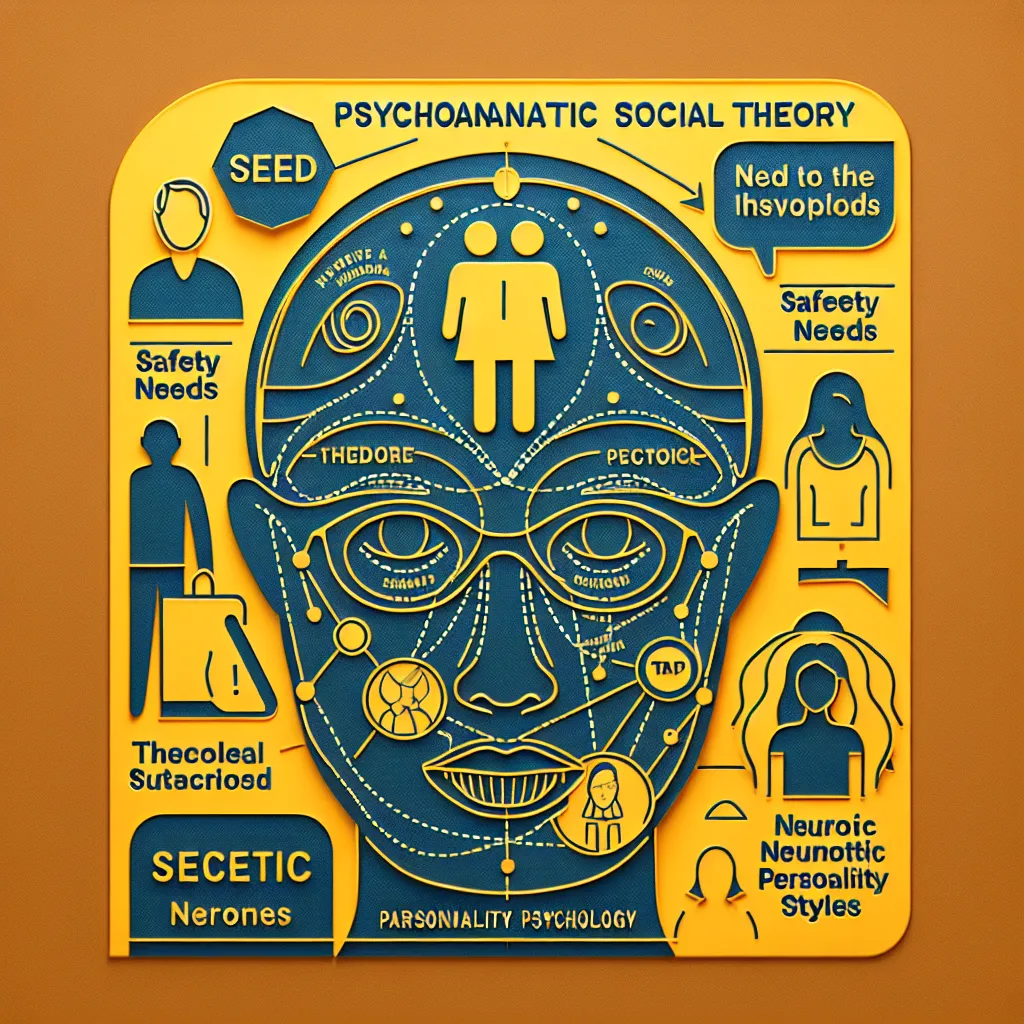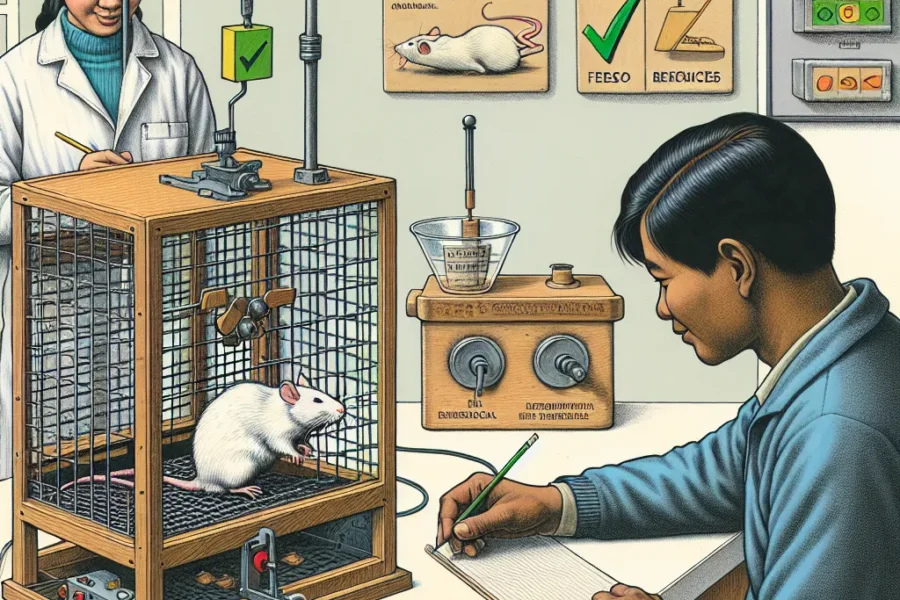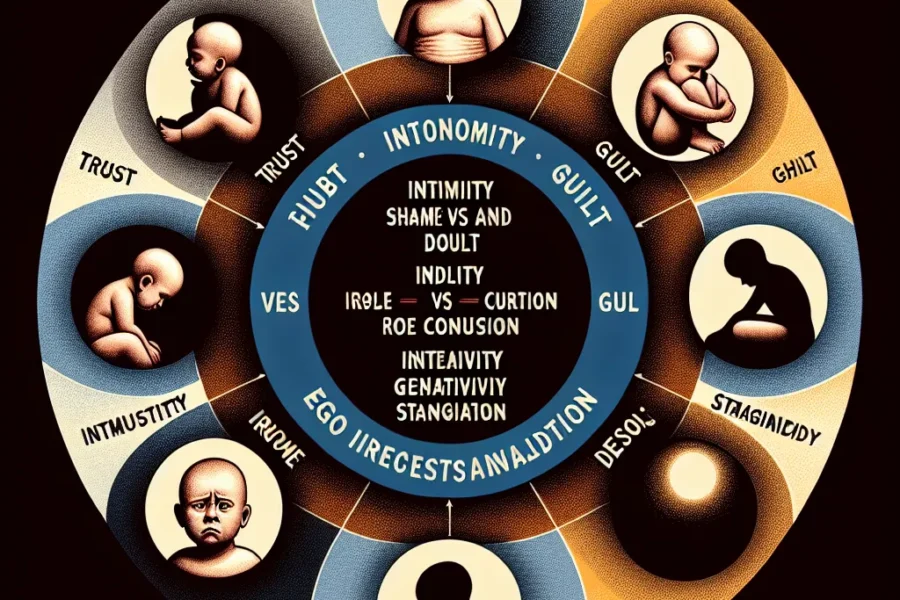Karen Horney stands out as one of the most influential figures in personality psychology, thanks to her distinctive theoretical perspectives and contributions. Despite the field’s deep roots in Freudian theory, Horney took a divergent path, emphasizing socio-cultural factors and the individual’s capacity for growth and self-realization. Her work challenged the prevailing psychoanalytic precepts and introduced concepts such as neurotic needs, basic anxiety, and the real self, which continue to resonate with modern psychological understanding.
Born in 1885 in Germany, Karen Horney was a pioneering psychoanalyst who, through her extensive clinical experience, developed a comprehensive theory of neurosis that centered on the concept of basic anxiety. She proposed that this anxiety was the result of disturbed interpersonal relationships, which in turn could stem from a variety of environmental and social conditions, rather than sexual conflicts as per the Freudian model. Horney’s emphasis on the social and cultural dimensions of personality development provided a much-needed balance to the inherent biological determinism of her predecessors.
One of Horney’s key propositions was the idea of the “real self” and the “idealized self”. In her view, the real self constitutes our inner core of potential and genuine feelings, which manifests when we live in accordance with our true values and capabilities. Conversely, the idealized self arises from an unhealthy adaptation to external pressures, leading individuals to chase a fictitious image of themselves that is dictated by perfectionism and unattainable standards. This dichotomy remains profoundly relevant, offering insights into modern discussions around authenticity, self-esteem, and the impact of societal expectations.
Horney’s notable departure from Freudian thought was perhaps most visible in her views on gender psychology. She vehemently disputed Freud’s theory of penis envy, offering instead the perspective of “womb envy” as a counterargument, positing that men may experience feelings of inadequacy owing to their inability to give birth. This radical viewpoint contributed to an early discourse on gender parity in psychology and underscored the necessity of considering both male and female experiences when exploring psychological phenomena.
Another significant concept introduced by Horney was the ten neurotic needs. This framework encapsulates various dimensions of personality that, when taken to extremes due to anxiety, can result in neurotic behaviors. These needs encompass aspects such as affection, power, admiration, and independence. Understanding these needs and their origins has been instrumental in psychotherapy, as it allows for the identification and treatment of underlying causes of mental distress, rather than merely addressing the symptoms.
The influence of culture was another area where Horney made a profound impact. She argued that culture and society have substantial effects on personality development. In particular, she looked at how in different cultures various modes of adapting to one’s environment could either support personal growth or become sources of basic anxiety. This cultural sensitivity is now recognized as a cornerstone of contemporary therapeutic practice, with counselors and psychologists employing culturally informed interventions and acknowledging cultural diversity in mental health.
Horney’s legacy extends well beyond her theoretical contributions. She was a prominent educator, having founded the American Institute for Psychoanalysis and advocating for a more holistic, humanistic approach to psychotherapy. Her ideas have been golden threads woven into the fabric of humanistic psychology, influencing theorists such as Abraham Maslow and Carl Rogers, who prioritized the individual’s potential and supported the client-centered, empathetic approach in therapy.
Moreover, Horney’s work has stood the test of time by resonating with the existential questions of the human condition. Her theory speaks not only to clinicians but also to anyone seeking to understand the underpinnings of their personality and behavior. Her insights into the struggles between the needs for affiliation and independence, for instance, are echoed in contemporary discourses on work-life balance and the quest for personal fulfillment.
The relevance of Horney’s ideas has proliferated into various subfields within psychology. Social psychologists, for instance, have drawn upon her notions of social and cultural determinants in exploring the dynamics of group behavior and social identity. Developmental psychologists see the reflections of her ideas in the study of childhood and adolescence, where the impact of parent-child relationships on long-term personality development is a subject of continuous research.
In the education sphere, Horney’s emphasis on real self versus idealized self is particularly pertinent. Educators aim to foster environments that promote self-realization and minimize the pressure to conform to unrealistic standards. Horney’s theory underscores the importance of holistic development, encouraging schools to not only impart academic knowledge but also to nurture emotional intelligence and self-awareness.
Modern therapy practices also owe a great deal to Horney’s forward-thinking approach. Cognitive-behavioral therapy (CBT), for example, aligns closely with Horney’s belief that by challenging and reframing irrational beliefs, individuals can reduce their neurotic patterns and move closer to their real self. The personal growth and positive change that Horney advocated for are seen today in affirmative psychotherapy methodologies that prioritize resilience, self-compassion, and the adaptive capacities of individuals.
The intersection of Karen Horney’s theories with new research in neurobiology and attachment theory has opened up new interpretations of her work. Given the advancements in understanding how early relationships and attachment styles can shape brain development and personality, Horney’s theories gain additional credibility and relevance within the scientific community. Modern psychologists recognize the complexities of neurotic patterns and personality disorders through the lens of both early life experiences and the innate biological mechanisms Horney had once hypothesized.
In conclusion, Karen Horney’s perspective on personality psychology offers an enduring foundation for understanding the multifaceted nature of human behavior and psychological health. Her pioneering ideas challenged established norms, pushed the boundaries of what was considered possible in therapeutic settings, and catalyzed a more compassionate and culturally aware approach to understanding individuals. Academics, clinicians, and the general public are indebted to Horney’s contributions, which continue to spark curiosity, foster personal growth, and guide therapeutic interventions in an ever-evolving field of psychology. As we continue to explore the complexities of the human psyche, her unique perspective on personality psychology remains a vital beacon guiding the way.



Leave a Comment